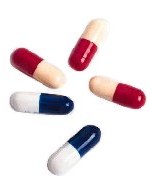
For decades, the gold standard of medical research has been the double-blind, placebo-controlled clinical trial. You give one group of patients a medicine you want to test, and another group a dummy pill that has no active ingredients. Neither the patients nor doctors know who is getting which.
Placebo trials are used to tell researchers whether a tested drug has any healing effect beyond that which occurs a certain percentage of time when people take an inert pill. A patient’s belief in a pill – a supposed medicine, but chemically innocuous – is thought to activate their body’s healing powers.
I am fascinated that a major debate erupted when a group of doctors discussed the immoral and unethical aspects of utilizing a placebo. Their reasoning was that regular and beneficial medicine was being withheld from a patient.
The co-authors of an article addressing this topic, Kenneth Rothman, a Ph.D. From Boston University School of Public Health, and Karin Michels of Harvard School of Public Health, both stated that to give a patient a placebo, that has a ‘known efficacy of zero,’ was highly unethical.
Some other medical doctors and researches have jumped into the debate, stating that placebos are just a nuisance variable.
There has been sharp disagreement on this point, due to the fact that medical literature includes a great deal of testimony that the placebo effect routinely works 30 percent of the time, with Dr. Herbert Benson of Harvard stating that it may work up to 90 percent of the time.
Overlooked by its critics in this discussion, is the fact that studies that have utilized placebos have produced some rather remarkable, and at the same time unexplainable, results. Rather than looking at it as a nuisance, we should be looking at the placebo as a key to ascertain a remarkable phenomenon that seems to be a part of the human psyche.
(The remainder of this article will present a number of interesting placebo statistics that have been recorded in the medical literature. Within this article, footnotes will not be used nor the studies listed, but all are from medical literature.) Here is a wonderful presentation of the power of our minds and our belief systems.
“In the 1950′s angina pectoris, recurrent pain in the chest and left arm due to decreased blood flow to the heart, was commonly treated with surgery. Rather than doing the customary surgery, which involved tying off the mammary artery, some resourceful doctors cut patients open and then simply sewed them back up again. The patients who received a sham surgery reported as much relief as the patients who had the full surgery.”
“The effectiveness of a placebo in any given circumstance also varies greatly. In nine double-blind studies comparing placebos to aspirin, placebos proved to be 54 percent as effective as the actual analgesic. From this, one might expect that placebos would be even less effective when compared to a much stronger painkiller such as morphine, but this is not the case. In six double-blind studies placebos were found to be 56 percent as effective as morphine in relieving pain.”
“In a recent study of a new kind of chemotherapy, 30 percent of the individuals in the control group, the group given placebos, lost their hair.”
“In a study of a tranquilizer called mephenesin, researchers found that 10-20 percent of the test subjects experience negative side effects – including nausea, itchy rash, and heart palpitations – regardless of whether they were given the actual drug or a placebo.”
In the book, The Psychobiology of Mind-Body Healing: New Concepts of Therapeutic Hypnosis, written by Ernest Lawrence Rossi, we find the following mention about the 55-60% placebo connection, “In other words, the effectiveness of placebo compared to standard doses of different analgesic drugs under double-blind circumstances seems to be relatively constant…it is worth noting that this 56% effectiveness ration is not limited to placebo versus analgesic drugs. It is also found in double-blind studies of non-pharmacolgical insomnia treatment techniques (58% from 14 studies) and psychotropic drugs for the treatment of depression such as tricyclics (59% from 93 studies reviewed by Morris & Beck, 1974) and lithium (62% from 13 studies reviewed in Marini, Sheard, Bridges and Wagner, 1976). Thus, it appears that placebo is about 55-60% as effective as active medications irrespective of the potency of these active medications.”
In the book, The Psychobiology of Mind-Body Healing: New Concepts of Therapeutic Hypnosis, written by Ernest Lawrence Rossi, we find the following mention about the 55-60% placebo connection, “In other words, the effectiveness of placebo compared to standard doses of different analgesic drugs under double-blind circumstances seems to be relatively constant…it is worth noting that this 56% effectiveness ration is not limited to placebo versus analgesic drugs. It is also found in double-blind studies of non-pharmacolgical insomnia treatment techniques (58% from 14 studies) and psychotropic drugs for the treatment of depression such as tricyclics (59% from 93 studies reviewed by Morris & Beck, 1974) and lithium (62% from 13 studies reviewed in Marini, Sheard, Bridges and Wagner, 1976). Thus, it appears that placebo is about 55-60% as effective as active medications irrespective of the potency of these active medications.”
“In a study of morphine, there was a 50% pain reduction in 75% of the patients treated. The placebo group had a 50% pain reduction in 36% of the patients.”
“In 1980 there were over 1000 articles dealing with placebos. Placebos had a high rate of activity in the areas of cough, mood swings, diabetes, anxiety, asthma, sarcoma, dermatitis, headaches, rheumatoid arthritis, radiation sickness, Multiple Sclerosis and Parkinson’s.”
“A group of patients were told they were given LSD when in fact they were given the placebo. They had all the physiological effects noted with LSD.”
“Dr. David Sobel, a placebo specialist with Kaiser hospital told the following: ‘a doctor was treating one of his asthma patients with a new drug. This new potent medicine worked within minutes. When the patient had the next attack the doctor gave the placebo. The man complained it didn’t work. Then the doctor received a letter that stated the first pill was actually a placebo that was sent by mistake.’”
“Ipecac is a substance know to always induce vomiting. A 28-year-old female who was suffering from two straight days of nausea and vomiting was given 10cc of Ipecac syrup and told it was a new drug that stopped vomiting. In twenty minutes the vomiting had stopped completely. Her stomach showed normal contractive activity.”
“During a study for headache, 120 our of 199 patients receiving the placebo obtained relief. In a test of Clofibrate versus placebo for cholesterol level and cardiovascular mortality, the placebo outperformed the drug.”
“Placebos effectiveness is in proportion to what the doctor and the patient think they are using. Two placebo pills are better than one and an injection always seems to be more effective than a pill. Placebo capsules are more effective than tablets. When placebos are administered, the yellow and orange are great for mood manipulators, the dark red as a sedative; white as pain killers and lavender as hallucinogens.”
“In a back pain sham therapy of four years, 40% of the placebo group improved.”
“In a sham tooth-grinding surgical procedure, there was a 64% total symptom remission.”
“Doctors Seidel and Abrams found that a hypodermic of saline was as effective as vaccines for chronic rheumatoid arthritis.”
“In a study for Raynaud’s Syndrome, utilizing an apparatus with saline and the clicking of dials, every case using the placebo improved. Six had excellent improvement and one patient great improvement after one year.”
“In postoperative patients, 14% had pain reduction using a placebo.”
“Psychologist Bruno Klopfer was treating a man named Wright who had advanced cancer of the lymph nodes. All standard treatments had been exhausted and Wright appeared to have little time left. His neck, armpits, chest, abdomen, and groin were filled with tumors the size of oranges, and his spleen and liver were so enlarged that two quarts of milky fluid had to be drainedout of his chest every day.
Wright heard about an exciting new drug called Krebiozen, and he begged his doctor to let him try it. At first the doctor refused because the drug was being tried on people with a life expectancy of at least three months. Finally the doctor gave in and gave Wright an injection of Krebiozen on Friday, but in his heart of hearts he did not expect Wright to last the weekend.
“To his surprise, on the following Monday he found Wright out of bed and walking around. Klopfer reported that his tumors had ‘melted like snowballs on a hot stove’ and were half their original size. Ten days after Wright’s first treatment, he left the hospital and was, as far as his doctors could tell, cancer free. When he entered the hospital he had needed an oxygen mask to breathe, but when he left, he was well enough to fly his own plane at 12,000 feet with no discomfort.
“Wright remained well for about two months, but then articles began to appear asserting that Krebiozen actually had no effect on cancer of the lymph nodes. Wright, who was rigidly logical and scientific in his thinking, became very depressed, suffered a relapse, and was readmitted to the hospital. This time his physician decided to try an experiment. He told Wright that Krebiozen was every bit as effective as it had seemed, but that some of the initial supplies of the drug had deteriorated during shipping. He explained, however, that he had a new highly concentrated version of the drug and could treat Wright with this. The physician used only plain water and went through an elaborate procedure before injecting Wright with the placebo.
“Again the results were dramatic. Tumor masses melted, chest fluid vanished, and Wright was quickly back on his feet and feeling great. He remained symptom-free for another two months, but then the AMA announced that a nationwide study of Krebiozen had found the drug worthless for the treatment of cancer. This time Wright’s faith was completely shattered. His cancer blossomed anew and he died two days later.”
(Brono Klopfer, Psychological Variables in Human Cancer, Journal of Prospective Techniques 31, 1957, pp. 331-40.)
I don’t believe that the use of placebos is immoral or unethical. In reality, it seems that the medical profession’s lack of understanding and utilization of the mechanism of the placebo in the healing process is tragic, shortsighted and cowardly. Cowardly in the aspect that it has been far easier for doctors to simply say that the placebo response is worthless, and nothing more than someone’s wishful thinking or trickery of the mind. The bottom line is the response; for whatever reason, placebos seem to work… patients get better.
An interesting statistic has shown that virtually all newly introduced surgical techniques show a decrease in success over time. Is this also a placebo response?
